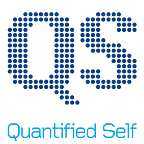Blood Testers: a Collaborative QS Project
by Azure Grant
At the 2017 Quantified Self Global Conference, we met to discuss a collaborative QS project that we’re calling, “Blood Testers.” As Cardiovascular disease (CVD) is the number 1 killer in the world, our immediate goal is to learn more about ourselves from high frequency self-testing of our blood lipids (i.e., cholesterol and triglycerides). Our long-term goal is to advance progress in self-directed research by better understanding what makes these types of projects succeed or fail.
In most Quantified Self projects, one person does almost all of the work, perhaps with a bit of advice from friends and online feedback. But what if you could work in a group of people with varied skills to explore questions you developed through conversation and collaboration? Everyone can pose questions and determine for themselves what data they want to collect, but can also benefit from others’ unique skills, compare results, and team up to tackle challenges like device validation and data analysis. The idea isn’t to take control away from the individual, but to provide resources that connect the community through developing shared methods.
Because the underlying physiology of CVD is highly individualized, and can be mitigated or reversed by lifestyle change, it is both possible and important that individuals participate in mapping their unique physiology and in their own healthcare. But as research is typically conducted in university laboratories, and medical tests are usually performed in clinics, the human subject and the patient are largely isolated from the development of CVD research and healthcare. The result is a divide: those meant to benefit from research largely do not participate in, or understand it. The experiences of the Quantified Self community, however, have convinced us that the ability to reason about a problem using evidence is not a narrowly professional skill. Many people can do it. We’re interested in testing our process of collaborative self-tracking and seeing if it can lead to new personal knowledge about our cardiovascular health. Designing a new way to share expertise, lighten individual burden, and increase project quality is a non-trivial problem that will continue to evolve and challenge us. We hope to make a contribution by offering a worked example of a kind of discovery that is informed by ‘expert’ individuals, highly participatory, and open access.
Our Plan
In fall 2017, a group of QSers from our breakout session in Amsterdam will receive a package in the mail containing an at-home lipid test kit. Expenses for the tests and setting up the project are being paid by our sponsor, Amgen. Through in-person meetings, webinars, and one-on-one online chats, participants will engage in three questions.
- The first revolves around the nature of the project: What can we learn about ethical review, experimental design, execution, analysis and presentation by working in a group?
- The second question is scientific and one the group will answer together by conducting the same experiment: Given that lipids change over hours and days, but are normally measured but once per year, can we learn something new about our health by mapping these high-frequency changes?
- The third question will elucidate both process and personal lipid physiology: Each participant will design and execute a project of personal interest using insights gained during the first experiment.
Both process and projects will be shared with the community over the next few months via posts in this publication We hope you’ll observe this process with us from start to finish, and learn with us about the challenges and successes to be had in the process.
